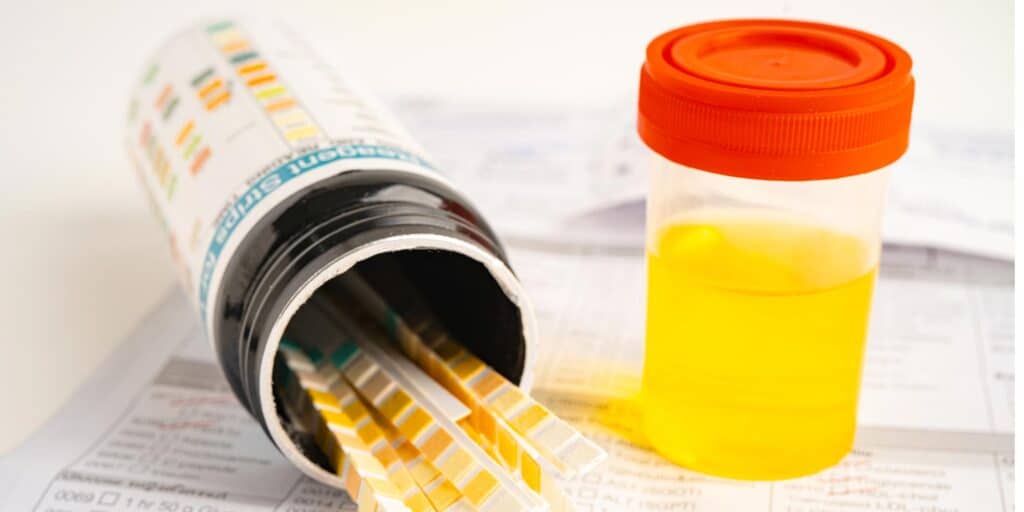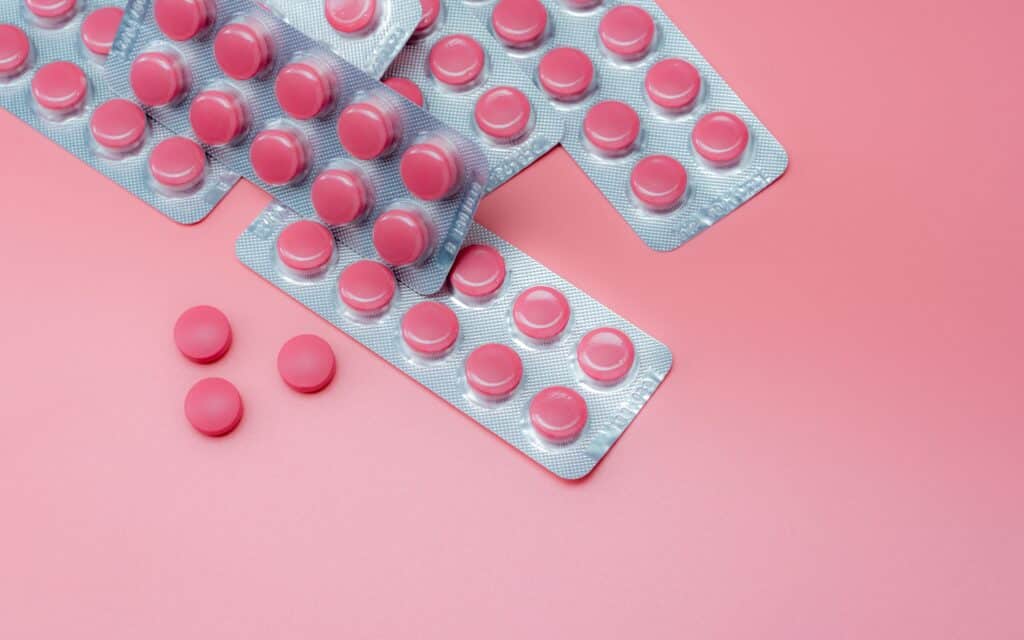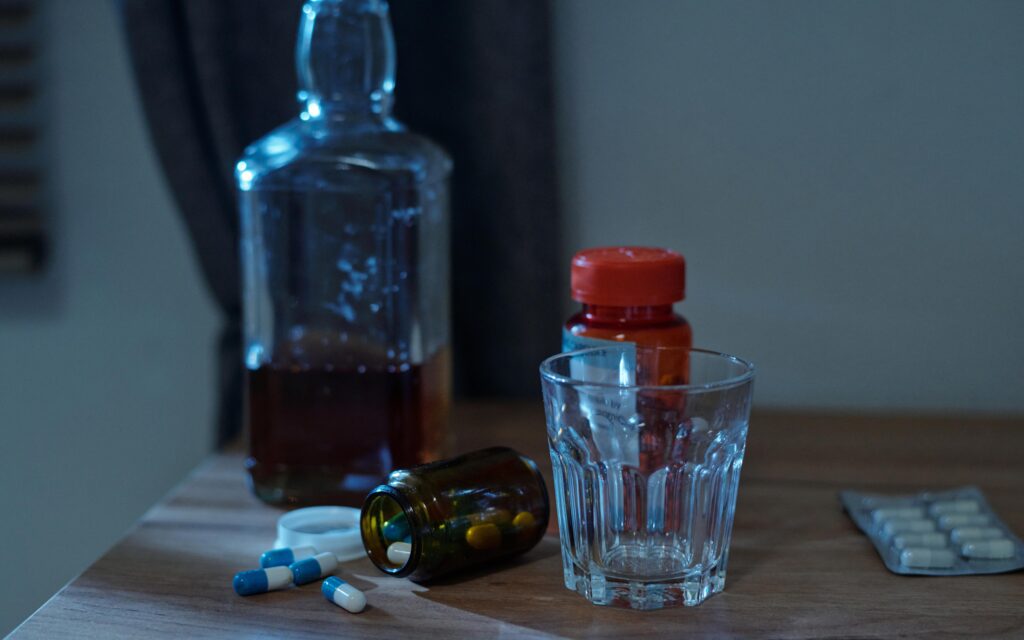Does NyQuil Make You Sleepy? Effects and Considerations
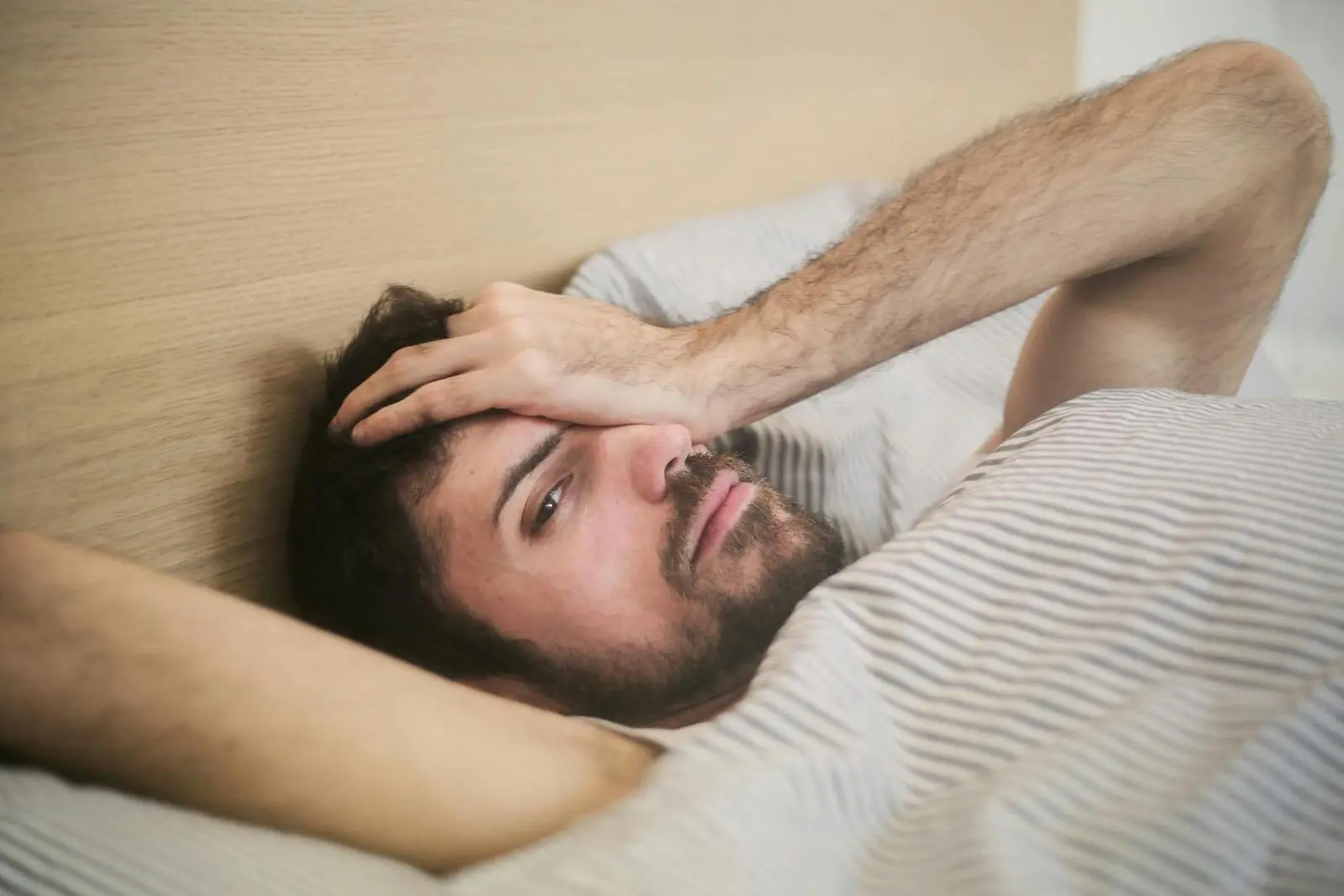
NyQuil is a popular cold and flu medication brand that complements the DayQuil brand. Vicks produces it in different formulations to relieve cold and flu symptoms that hinder restful sleep. Several ingredients can cause sleepiness, including a sedative histamine, doxylamine, and a cough suppressant, dextromethorphan[1]
The sedative effect of NyQuil is intended to help relieve symptoms that prevent restful sleep, but it can lead to misuse. Some people misuse NyQuil to help with insomnia or sleep problems, which can worsen side effects.
Key Points
- NyQuil is a brand of nighttime cold and flu medications that relieve symptoms overnight and promote sleep.
- Because the medication is intended for sleep, drowsiness is a common effect of several ingredients.
- NyQuil is helpful when cold or flu symptoms prevent you from sleeping, but it’s not intended to be used for insomnia.
- Taking NyQuil for sleep problems can have significant risks, including severe side effects and dependence.
What Is NyQuil?
NyQuil is a brand of over-the-counter (OTC) cold and flu medications produced by Vicks. Though NyQuil is commonly known by its brand name, several formulas are available to help with different cold and flu symptoms. The active ingredients in NyQuil products can vary, but they all contain an antihistamine to cause drowsiness and promote restful sleep. Some products have other ingredients, such as dextromethorphan for cough suppression and acetaminophen for pain relief or fever reduction.
As a combination cold medication, NyQuil treats multiple symptoms associated with colds and flu. Though NyQuil is generally safe and well tolerated, there are side effects and risks to be aware of, including moderate to severe drowsiness.
Why Does NyQuil Make You Sleepy?
NyQuil products come in many different formulas, but they all contain ingredients that cause sleepiness. For many people, drowsiness starts about half an hour after taking NyQuil.[2]
Some of the ingredients that cause drowsiness in different NyQuil products include:
Dextromethorphan HBr
Dextromethorphan is a cough suppressant that reduces the brain’s signals that induce a cough, helping you sleep through the night without excessive coughing. The side effects of dextromethorphan can include drowsiness, lightheadedness, restlessness, and gastrointestinal upset.[3]
Many NyQuil products contain dextromethorphan HBr, including Cold and Flu Nighttime Relief, Cough DM and Congestion Medicine, Cold and Flu Severe Cough, Flu, and Nighttime Relief, and High Blood Pressure Cold and Flu Medicine.
Acetaminophen
Acetaminophen is a pain reliever commonly known as Tylenol. It works to relieve minor aches and pains or fever, but it can also relieve sore throat and headaches associated with colds or flu. The drug has mild side effects at lower doses.
However, high doses of acetaminophen can be extremely risky. Taking more acetaminophen than the recommended dosage can cause liver damage.
Acetaminophen is a common pain reliever that targets symptoms like minor aches and pains, fever, headache, and sore throat. Acetaminophen has relatively mild side effects when taken at the recommended dosages. The recommended maximum daily dose of acetaminophen is 3,000 milligrams (mg), but there’s a small margin between a safe dose and a dose that can cause liver damage.[4]
Acetaminophen is included in several NyQuil formulas, including Cold and Flu Nighttime Relief, High Blood Pressure Cold and Flu Medicine, and Severe Cough, Cold, and Flu Nighttime Relief.
Phenylephrine HCl
Phenylephrine HCl is a decongestant medication that relieves sinus congestion, common with colds and flu. It doesn’t have drowsiness as a side effect, but it can have side effects like headache, dizziness, or upset stomach.[5]
NyQuil includes phenylephrine HCl in several formulas, including Cough DM + Congestion Medicine and Severe Cough, Cold, and Flu Nighttime Relief.
Doxylamine Succinate
Doxylamine succinate is an antihistamine that blocks the action of histamine, a substance that contributes to allergy symptoms. It can relieve sneezing, runny nose, and sinus congestion, common with cold and flu. Antihistamines like doxylamine can have side effects like drowsiness, headaches, and sinus dryness.[6]
Several NyQuil formulas include doxylamine succinate, Cough DM + Congestion Medicine, High Blood Pressure Cold and Flu Medicine, Severe Cough, Cold, and Flu Nighttime Relief, and Cold and Flu Nighttime Relief.
How Quickly Does Drowsiness Begin with NyQuil?
NyQuil can cause drowsiness within half an hour of taking the medication. It’s intended for just before bedtime when you know you can sleep a full night (8 hours), which allows the effects to subside before you wake. Driving or performing other activities requiring alertness while experiencing drowsiness is dangerous.
Does NyQuil Help with Sleep?
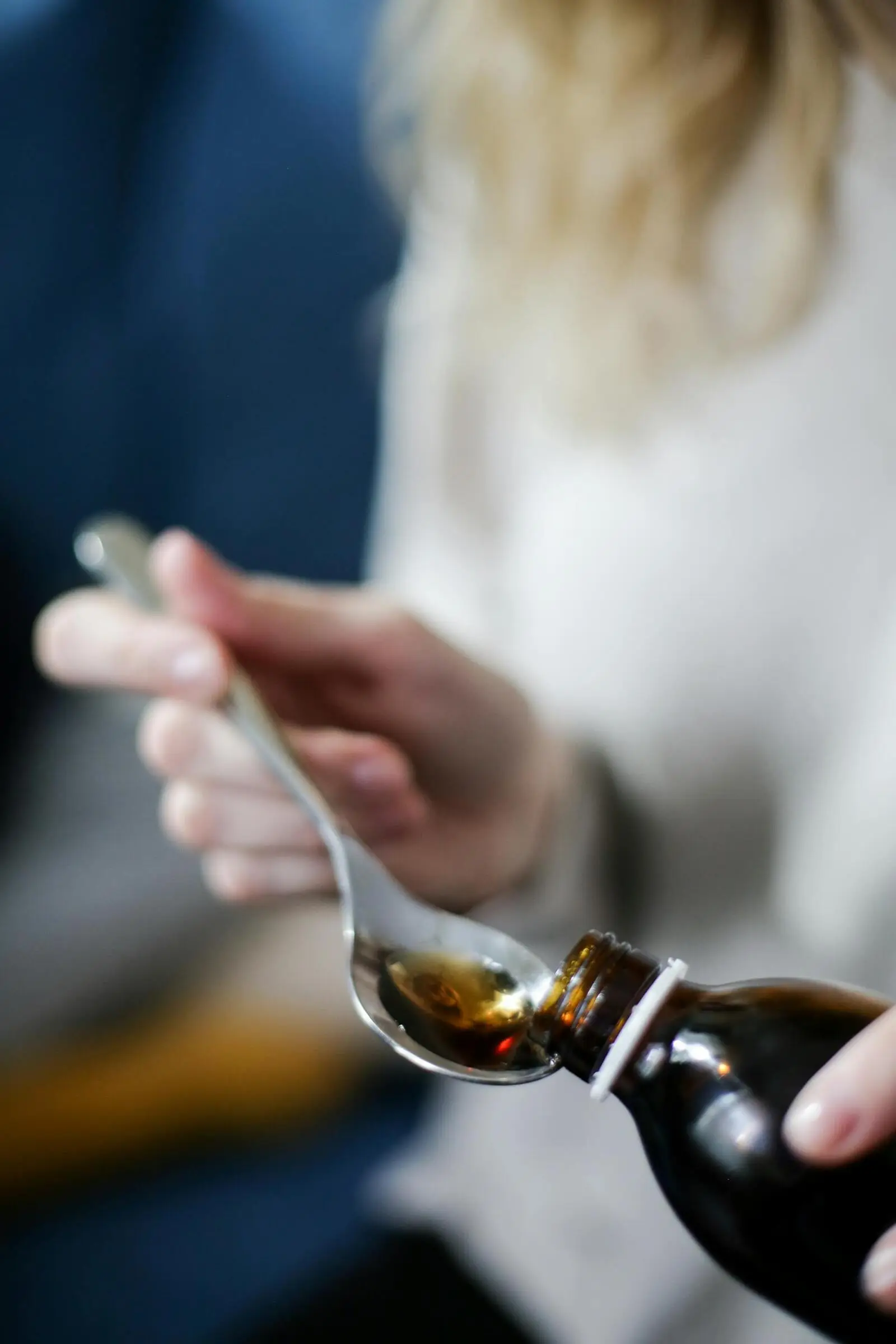
Yes, NyQuil can help promote sleep if cold and flu keep you awake, but it’s not intended as a sleep aid to help with insomnia or other sleep problems. Doxylamine is a sleep aid on its own, but taking it as part of a combination medication like NyQuil can be dangerous.
Doxylamine can build tolerance quickly, which means you need more of the medication to get the same effects. Taking it for two weeks or more can build tolerance, diminish its effectiveness, and may worsen side effects.
Another risk of using NyQuil as a sleep aid is the other ingredients. Acetaminophen can be dangerous in high doses, particularly for the liver. Taking NyQuil as a sleep aid or combining it with other medications that contain acetaminophen can cause severe liver damage. Other possible side effects include headaches, dizziness, dry mouth, and skin rashes.
NyQuil has potential drug interactions, including monoamine oxidase inhibitors (MAOIs) like rasagiline, selegiline, isocarboxazid, and tranylcypromine.[7] People who are pregnant or breastfeeding should be cautious with NyQuil, and the medication can be dangerous for people with certain health conditions. The side effects of NyQuil may be worse in older adults (over 65).
Is NyQuil Addictive?
NyQuil products are available over the counter and not generally viewed as addictive, especially when used as directed for short periods to relieve cold and flu symptoms. However, taking NyQuil for long periods or at high doses can cause dependence, so if you stop taking it suddenly or reduce your dose, withdrawal symptoms like cravings, stomach pain, anxiety, and rebound insomnia may occur.
Dextromethorphan, a common ingredient in several NyQuil products that acts as a cough suppressant, has potential for misuse and abuse. High doses of dextromethorphan can cause euphoria and hallucinations that encourage misuse. The effects of dextromethorphan in high doses can mimic PCP, a potent hallucinogenic drug that has effects like impaired coordination and judgment.[8] Taking NyQuil with other substances, such as antidepressants, alcohol, or acetaminophen, can significantly increase the impairment. There are potential adverse health effects as well, such as seizures, heart attack, and liver damage.
How to Handle Sleep Problems
NyQuil can help with sleep troubles that arise from cold and flu symptoms, but it’s not intended as a drug to treat insomnia or other sleep problems. Unfortunately, insomnia is a common and disruptive condition, so some people rely on OTC medications like NyQuil to fall asleep and stay asleep. This can be dangerous and increases the risk of side effects and health complications.
If you’re struggling to sleep, there are some ways to support restful sleep naturally:
- Ensure your bedroom is cool, dark, and free from distractions like electronic devices.
- Consider using blackout curtains, a white noise machine, or relaxing music to help with sleep.
- Avoid stimulants like caffeine and nicotine, which can keep you from falling asleep or sleeping soundly.
- Don’t rely on a “nightcap” to get to sleep. Alcohol may make you feel tired, but it keeps you from getting restorative sleep and can be habit-forming.
- Keep a strict sleep schedule with a specific bedtime and wake time.
- Try to relax before bed with activities like taking a bath, reading a book, or doing yoga.
- Stay active and exercise a few days a week.
- Resist the urge to nap during the day, which can prevent you from falling asleep at bedtime.
- Don’t stay awake in bed watching TV or scrolling on your phone. Commit to trying to sleep as soon as you go to bed.
- Reduce blue light from electronic devices like computer screens or cell phones.
NyQuil Makes You Sleepy, But It’s Not for Insomnia
NyQuil can be helpful if you have cold or flu symptoms preventing you from getting rest. However, the medication is not intended to help with sleep problems like insomnia and can be dangerous when taken for long periods.

